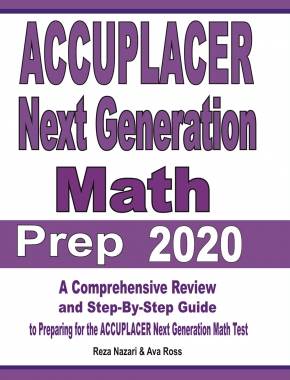The History of Random Number Generation: From Dice to Quantum Chips

Random chance plays a surprisingly big role our day to day. The trails that we blaze throughout our lives are all shaped by random occurrences and chance encounters. So many partners talk about an unplanned meeting in a coffee shop. Successful musicians have gone out of their way to bring up how a top-level producer just happened to be at a pub during a performance.
The Diverse Utility of RNG
Randomness shapes the lives of average people and superstars. But it also plays a part in our entertainment. The oldest gambling form had a lot to do with dice. Some might think of dice as a rudimentary random number generator. The amount of numbers a dice can generate is limited to be sure. But it is exactly what it says on the tin regardless.
Modern random number generators are capable of doing a lot more than just giving us six different results. The online gambling industry is built around the software after all. The type of random number generator that internet casinos use is no different from any other more developed software. But the way the technology is used in the modern world is certainly interesting.
That is why the goal we’ve set out in this article is to explore the history and use of random number generation. We will tackle its applications in quantum computing, while also discussing the uses it serves in entertainment. The text will hopefully satisfy anyone with a modicum of interest in games of chance and random encounters.
Random Number Generation in Gambling
The gambling industry is built around the concept of chance. Victory in many of the most popular games rely on random outcomes. The big example that will always be brought up is online slot games. Slots have been around since the late 19th century. But it wasn’t until close to a century later that they took off in virtual form. The modern iGaming market is built on a foundation of slot games that gamblers today seem to truly love.
Many modern players are aware that the slots they hold so dear are backed by a random number generator. You don’t need to be able a math whiz or solve any puzzle to get to the bottom of these games. All you need is for the RNG to line up just right. It is luck that guides the player in other words. But some may still be unaware exactly how the random number generator that powers slot machines works.
The software triggers when a player clicks the button that initiates the game. The reels start spinning and they don’t stop until the RNG spits out the random numbers corresponding to each slot. The numbers are each tied to a different symbol on the reel; meaning that the outcome is entirely random. Even land-based slot creators have begun utilizing RNG in their creation of virtual slot machines. But there are plenty of other games in the casino that utilize the RNG. Roulette and craps are the two most obvious ones.
Random Number Generators in Gaming
Gambling is not the only gaming category that utilizes RNG software. Traditional video games have also been able to utilize the technology in a beneficial way. Most will certainly jump to roleplaying games as a good example. The backbone of the RPG genre in gaming today is Dungeons & Dragons. Nobody will be surprised to learn that the core D&D gameplay relies on spinning dice. Roleplaying games use RNG software to emulate the random experience of a dice roll.
The use of RNG in roleplaying games is most evident in the JRPG genre. Japanese roleplaying games are picking up a lot of steam recently; especially after the incredible success of Clair Obscur: Expedition 33. The turn-based combat perfectly demonstrates when the dice roll is successful and when it is an utter failure. We know that there is no real dice being spun of course. It is all determined by the brilliantly-programmed random number generator which lies at the core of the game’s combat mechanics.
Random number generators go far beyond just RPGs and combat mechanics though. Video game designers implement them in character designs and even the stage creation process. Anyone with a passion for roguelike games has seen RNGs in action. The titles in the genre often have stages that rearrange after every failed attempt. Dead Cells and The Binding of Isaac are perfect examples of the implementation of RNG in stage design. No new run looks the same thanks to the brilliant use of random number generation.
What About Quantum Computing?
Randomness is at the very core of quantum theory. The branch is focused entirely on studying unpredictability and chance. It only makes sense that random number generation plays a key role in how this field of physics develops. This brings us to the ultimate rug pull in this article; namely that there is no such thing as a random number generator. Perhaps it is fair to say that true randomness does not exist as we imagine it.
Game studios and slot designers rely on Pseudo Random Number Generator software (PRNG) to operate their games. The tools are efficient and safe, but what is more important is that they can actually run on standard computers. Quantum random number generators are a different beast entirely. They are entirely unpredictable for one. But they also need immense power to actually run; making them entirely inefficient. Their importance to modern technology is undisputed regardless.
The field of cryptography would not function as efficiently as it does were it not for QRNGs. The software is the key to generating 100% secure keys that are unpredictable at their core. If we are to actually combat the threat of cybercrime, we are going to need quantum computers that operate using the software in question. We are lucky that industrious computer engineers are taking the time to develop the technology further considering the growing threat of digital crime.
Frequently Asked Questions
How do you add and subtract mixed fractions?
Adding and subtracting mixed fractions can seem as unpredictable as a roll of dice at first, but with a clear method, it becomes straightforward. To begin, convert each mixed fraction to an improper fraction, where the numerator (top number) is greater than the denominator (bottom number). For example, to convert 1 3/4, you multiply the whole number (1) by the denominator (4), add the numerator (3), making 7, and write it as 7/4. Once all fractions are improper, you can add or subtract them by finding a common denominator and adjusting the numerators accordingly. This process ensures your calculations are as accurate as those generated by modern random number generators, minus the complexity.
How do you multiply and divide decimals?
Multiplying and dividing decimals might seem as random as a roll of the dice, but with clear steps, it’s quite predictable! To multiply decimals, simply multiply the numbers as if they were whole numbers, then count and place the decimal point in the product so that the total number of decimal places equals the sum of the decimal places in the factors. For division, move the decimal point in both the divisor and dividend to the right until the divisor is a whole number, then proceed with the division as usual, placing the decimal point in the quotient directly above where it appears in the dividend. For a more detailed guide and practice problems, consider checking out these resources on how to multiply and divide decimals.
What is a growing pattern?
A growing pattern in mathematics refers to a sequence where each term increases based on a specific rule or formula. This concept is akin to the progression seen in random number generators, which advance from simple dice offering limited outcomes to sophisticated algorithms that produce a vast array of results. In educational contexts, understanding growing patterns helps students develop skills in reasoning and predicting future terms based on observed patterns. For more details on how this concept plays into broader mathematical principles, you can explore topics like number sequences and their real-world applications.
Related to This Article
More math articles
- Grade 3 Math: Quadrilaterals
- The Ultimate OAR Math Course (+FREE Worksheets)
- Finding the Area Between Two Rectangles
- 10 Most Common 8th Grade ACT Aspire Math Questions
- 5th Grade SBAC Math Practice Test Questions
- CLEP College Algebra FREE Sample Practice Questions
- Top 10 HSPT Math Practice Questions
- The Ultimate PERT Math Formula Cheat Sheet
- How to Find the Area and Perimeter of the Semicircle?
- Applying Floor And Ceiling Functions: Practical Examples And Solutions


























What people say about "The History of Random Number Generation: From Dice to Quantum Chips - Effortless Math: We Help Students Learn to LOVE Mathematics"?
No one replied yet.